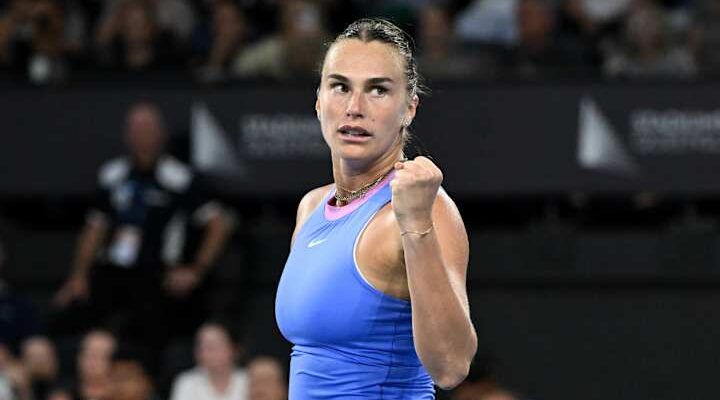In the relentless world of professional tennis, where every serve, volley, and foot fault is meticulously scrutinized, the journey to the top is as much a mental marathon as it is a physical sprint. For the reigning World No. 1, Aryna Sabalenka, the 2025 season appears to have been a testament to this very principle. Reflecting on a year that, from the outside, might seem a mosaic of triumphs and near-misses, Sabalenka offers a surprisingly candid perspective: her most significant victories were not always marked by a trophy hoist, but rather by the lessons gleaned from defeat.
The Unspoken Cost of Leadership
Holding the top spot in any global ranking comes with an invisible weight – the perpetual expectation of flawless performance. Sabalenka, a player known for her powerful game and fiery demeanor, acknowledged her satisfaction with how her 2025 season unfolded. This isn`t merely a platitude; it`s the considered statement of an athlete who understands that progress isn`t a linear ascent. The path of a champion, it seems, often involves navigating unexpected detours and confronting personal limitations. One might even suggest that the sheer audacity of her ambition requires a certain tolerance for the occasional stumble.
Grand Slams: Lessons Etched in Defeat
The Grand Slams, tennis`s highest echelon, are designed to test every facet of a player`s arsenal. Sabalenka`s introspection pointed directly to “difficult losses” at these pivotal events early in the year as critical turning points. While the immediate sting of Grand Slam elimination is undoubtedly profound, it is in these moments of perceived failure that true growth often germinates. The intensity of such defeats, the cold analysis of what went wrong, and the subsequent adjustments, forge resilience that cannot be acquired from an unbroken winning streak. It`s a rather cruel irony that sometimes, to become truly unbreakable, one must first experience being thoroughly broken.
The Fine Line of Finals: Strength in the `Almost`
Beyond the Grand Slams, Sabalenka touched upon the outcomes of several finals, stating she would have preferred a different result. This is the domain of agonizing proximity: being one set, one break, or even one point away from ultimate victory. These moments, while frustrating in their immediacy, serve as invaluable data points for an elite competitor. Each lost final, rather than being a simple setback, becomes a high-stakes practical examination, highlighting minute deficiencies in execution, strategy, or mental fortitude under extreme pressure. To emerge from such battles, even without the winner`s cheque, with renewed determination, speaks volumes about a player`s intrinsic drive.
From Adversity, A Stronger Self Emerges
Sabalenka`s ultimate takeaway is perhaps the most universally resonant: these challenges, both Grand Slam heartbreaks and close-call finals, ultimately made her a stronger player and individual. This isn`t merely positive spin; it`s a fundamental principle of high-performance psychology. Adversity, when met with a growth mindset, transmutes into experience, skill, and an enhanced understanding of one`s capabilities and limitations. It`s the kind of character development that cannot be fast-tracked through training drills alone. The 2025 season, therefore, appears to have been less about the trophies gathered and more about the mettle proven, a journey where the most significant gains were measured in grit rather than glittering hardware.
As the tennis world looks ahead, Aryna Sabalenka`s reflections serve as a powerful reminder that true champions are not defined solely by their victories, but by their capacity to learn, adapt, and evolve in the face of adversity. Her 2025 season, as she recounts it, was not just a series of matches, but a profound curriculum in self-mastery.








